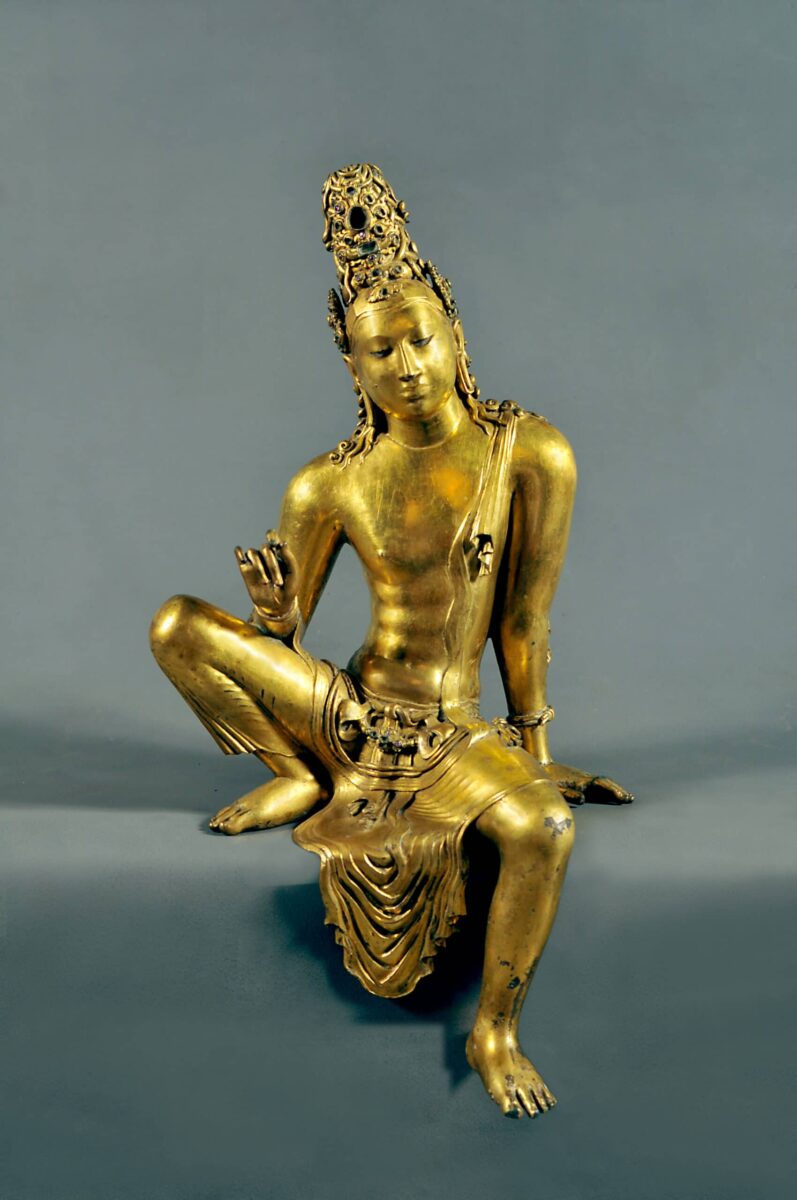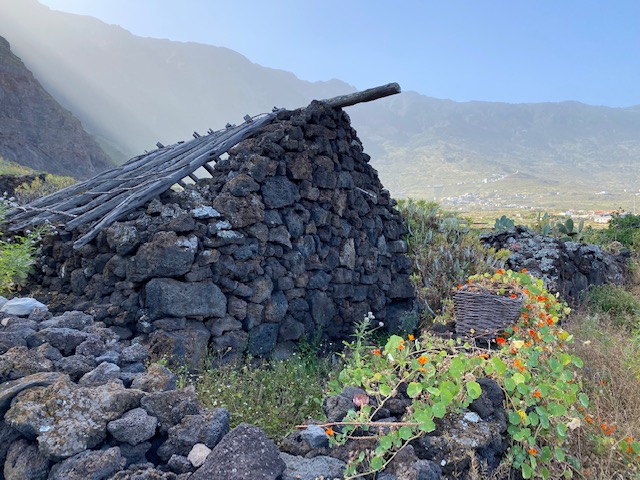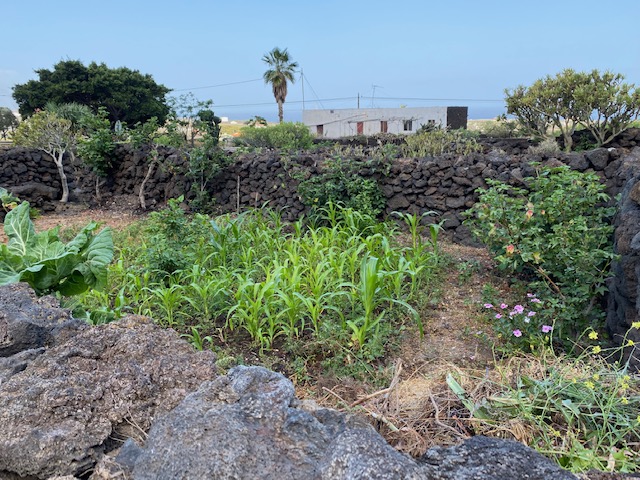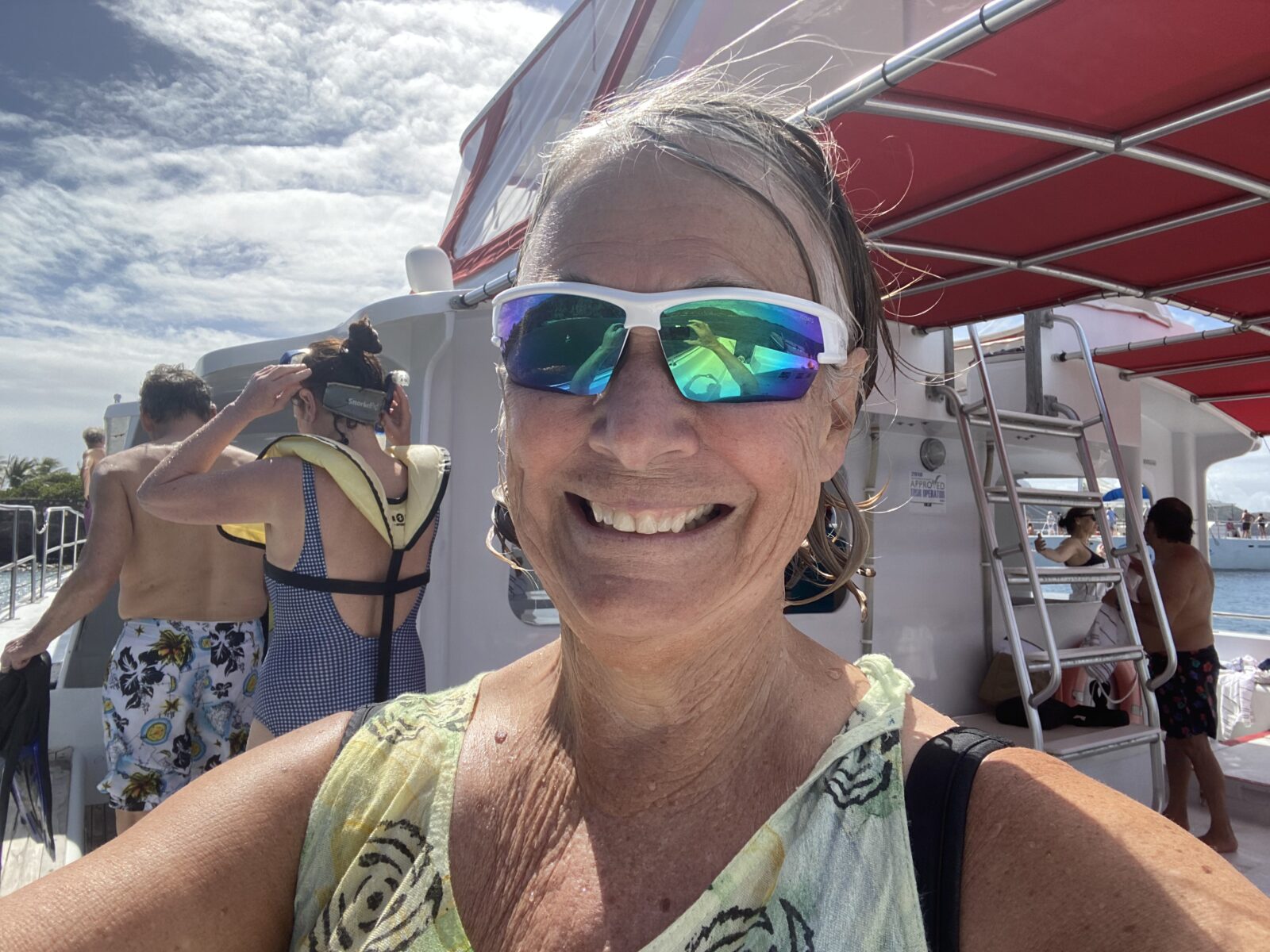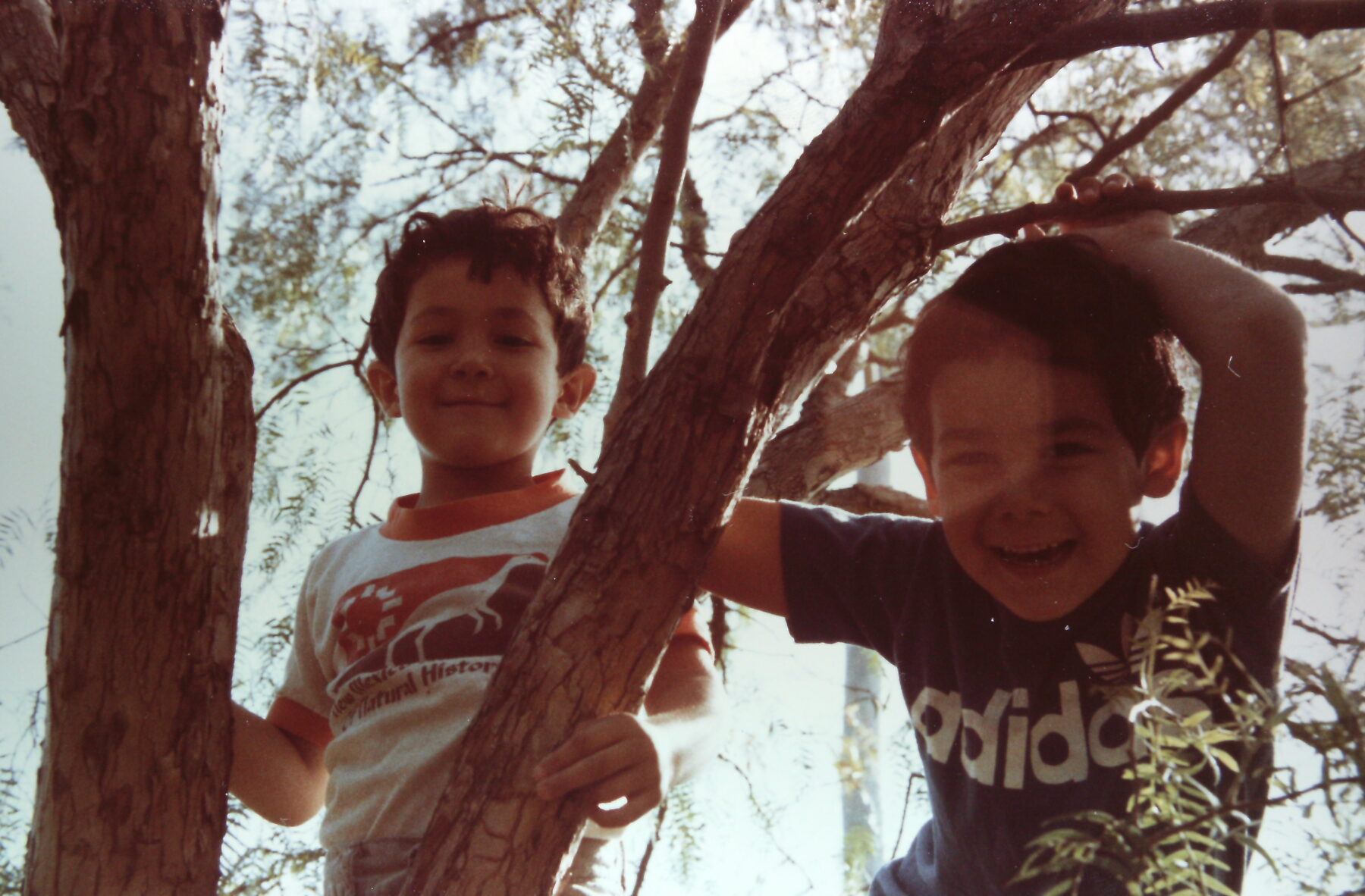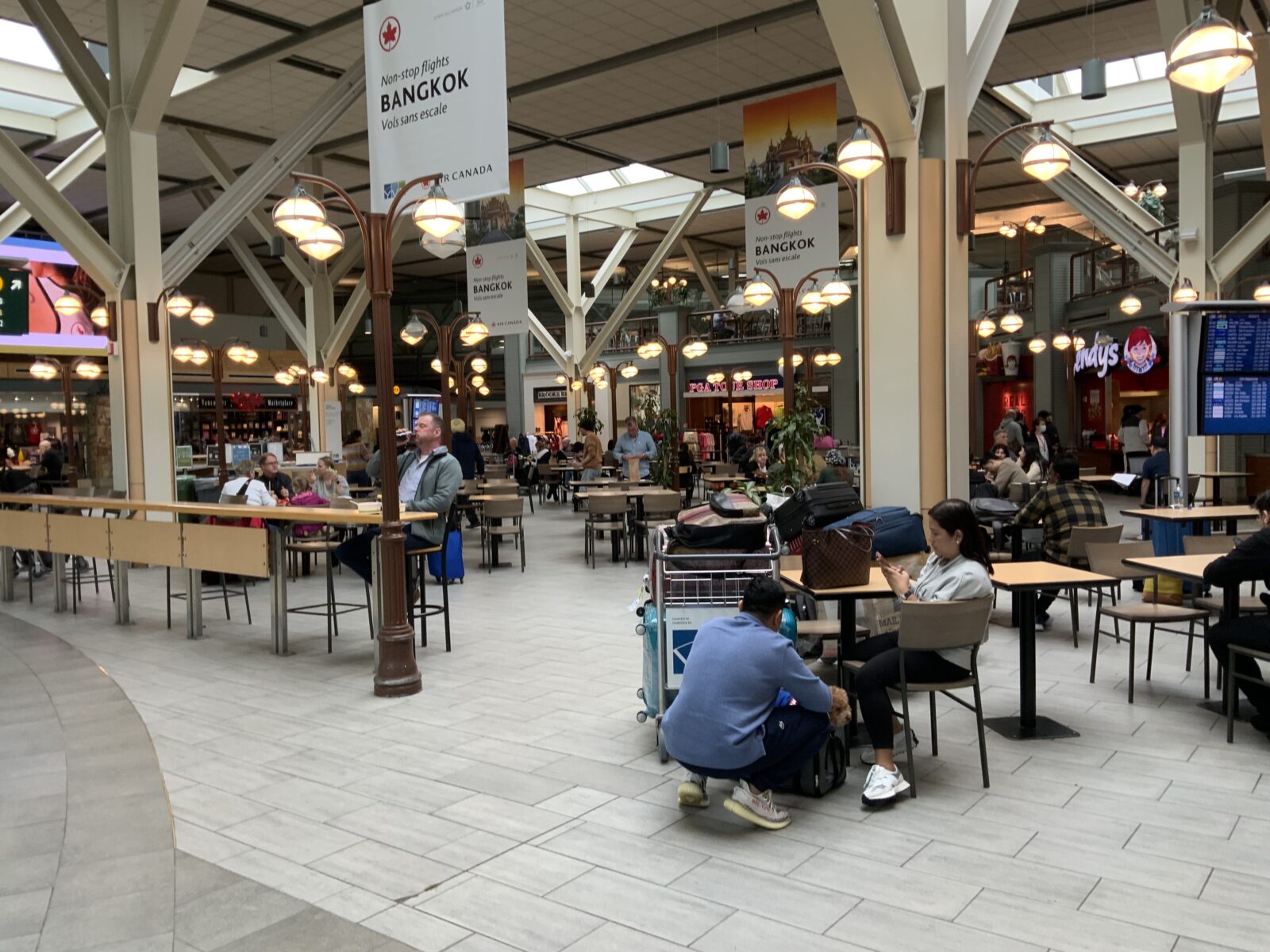I have been traveling the world as a cruise lecturer for over a decade now, and I always came home actually looking forward to going on a diet. I’ve done quite well managing my weight throughout my adult life, learning from childhood obesity that I never wanted to feel that uncomfortable in my body again. I’ve been told that fat cells don’t disappear once they are established. They are greedy little buggers that lurk in a shrunken state eager to fill up again. Maybe that isn’t all that scientific, but ask anyone who has ever been overweight how easy it is to gain weight, and compare that to someone who has never been anything but thin to average, and I rest my case.
In the past, whenever I finished a cruise assignment I stepped on the scale at home to assess the damage and got rid of any gained weight by the time my next contract started. This wasn’t entirely vanity—I have a thing about the expense (and admittedly a feeling of defeat) in having to buy larger clothing. But something in my attitude has been changing in the last few years (see my entry “Dear Feet, I Love You”), and a new mental calculus has recently taken over. I am moving away from “how much do I weigh?” or “am I going to need a larger size?” to “how does it feel to be in this body?” And the answer is usually “pretty darn good,” and when it isn’t, I make changes to get back to that.
When I moved to Victoria, I threw away my scale and switched to assessing my weight by whether I could button my pants. Now I have pull-ons—the best fashion innovation since cute flats!—and that enables substantially more denial. Overall, I am not sure how reliable weight is as an arbiter anyway, because changes in body mass index and fat distribution are natural parts of aging. As a result my pear shape is starting to resemble an apple, and I accept that I would need far more motivation than I currently possess to change that.
And that’s okay. When I look in the mirror, what I see is an amazing organism that has served me so well for so long, and continues to do so. It doesn’t matter if my stomach isn’t flat, and that so many parts look, well, kind of doughy. It is the story of my body’s survival to this age, and I am getting so much better at being grateful rather than judgmental.
Since losing Ivan, I tend to view everything through a new lens, trying to find what messages are there for me to take into this new chapter. One things rings loud and clear: my sons, wherever they are now, see me for all I was to them and who I am today, and that has nothing to do with my body at all. ‘Love yourself, “ they tell me, “because we can’t love you in the land of the living anymore.” It is up to me not to look negatively at how my body has changed, but simply to love myself however I am.
Which leads me to the insight that made me sit down to write this blog entry today. Because I was the only real stability in Ivan’s life, it was probably scary for him to watch me age. Though we rarely touched on the inevitability of my death, I know we were both rattled by what this would mean for him. As he saw my hair go gray and my skin get more wrinkled, did he have moments of panic? I suspect he did. It wasn’t just vanity that made me want to continue to look youthful; it was critical to his sense of well being that I did. One of the few ways my life actually feels better now is that I am free not to have to live up to what Ivan needed. And of course, he will now be spared going on without me.
We all know our children can’t help but see the swollen blue veins in our hands, the loose skin around our joints, the droops and creases in our faces. We want to reassure them they don’t need to worry. We have always wanted to comfort them in ways we—and they—know we cannot. We try as hard as we can to convey that really nothing has changed, that we are as vibrant, and energetic, and youthful as ever. I escaped this feeling of responsibility in the most brutal way possible, but now I can see what an unacknowledged burden it was.
In the horrible deflation I experienced after Ivan died, I thought to myself, “I guess this is how it feels to grow old.” It was a strange thought for me, because even though I am in my mid-seventies, I feel scarcely older than I did ten or even fifteen years ago. I have since recovered at least some of my energy, and I intend to take good care of my wonderful body because I want it to be a help and not a hindrance to the life I want, creases, sags, and all. I can hear my beautiful boys cheering me on. They don’t notice the wrinkles at all.


